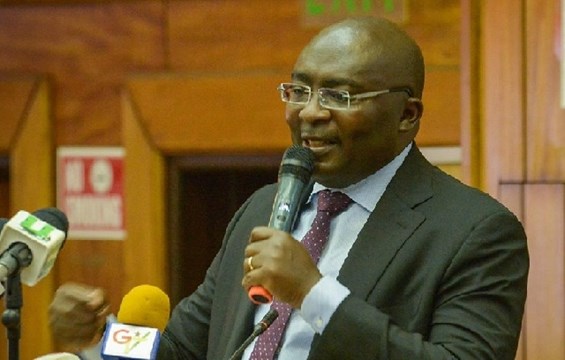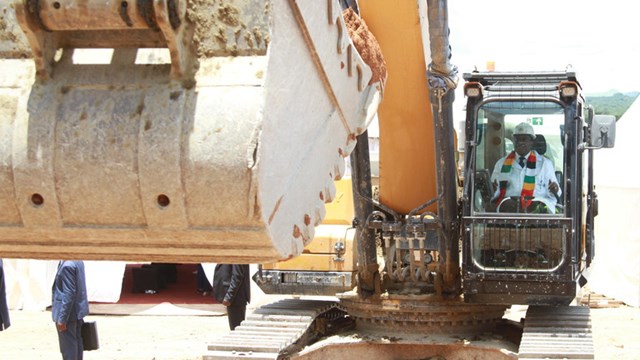The Adansi Rural Bank at Fomena in the Adansi North District of the Ashanti Region has posted a satisfactory operational performance in all the financial indicators in the 2016 year under review.
Operational performance
The bank recorded a pre-tax profit of a little over GH¢2 million in the 2016 year under review, representing 33.92 per cent growth over the approximately GH¢1.53million recorded the previous year.
The bank’s total deposit increased from about GH¢33.8 million in 2015 to a little over GH¢38.7 million in 2016, representing a growth of 14.55 per cent.
The bank’s loans and advances also went up by 5.66 per cent from approximately GH¢18.9 million in 2015 to GH¢19.9 million in 2016.
The Chairman of the Board of Directors, Mr Alhaji Ahmed Kwame Boakye, announced these and more at the 27th Annual General Meeting of shareholders at the bank’s head office at Fomena at the weekend.
Operational environment
According to him, the challenges of the global economy, characterised by slower economic growth depressed commodity prices hence the resultant squeeze in export receivables impacted adversely on the Ghanaian economy.
The Ghanaian economy was further impacted by energy supply shortfalls and the weakened economic fundamentals resulted in slow growth at less than four per cent with headline in?ation at 15.4 per cent.
The banking sector was not spared the challenges of the economy. Customers demanded better returns on their deposits.
The government revised the corporate tax for rural banks from eight per cent to 25 per cent which also affected the pro?t after tax.
The national economy experienced some inflationary and exchange rate as inflation peaked at 19.2 per cent even though the country managed to end the year at 15.4 per cent. The 9.6 per cent depreciation of the dollar, which is a major trading currency, also affected the prices of goods and services in the country.
Dividend
The directors recommended a dividend payment of GH¢0.008 per share for 2016 as against GH¢0.016 per share. The huge decline of dividend was due to the huge increase in corporate tax in 2016 from eight per cent to 25 per cent, totalling GH¢275,810.10.
Community support
The bank continues to offer assistance to communities and institutions within its catchment areas in terms of community development projects. The major areas that bene?ted include Education, Health, Sports and Recreation, Security, Financial Support (Adansi South & North, Bosomtwe, Atwima Kwanwoma and Obuasi Municipal assemblies) towards Farmer’s Day celebrations and 10 scholarship awards to needy brilliant students who are resident or hail from the bank’s catchment areas.
ICT infrastructure
The bank continues to invest in its banking software and application to make banking easier. The banking software of the bank has been changed to ensure smooth business relations with its cherished customers. The platform is to help facilitate the commencement of Automated Teller Machines (ATM) across all its branches by the close of the year.
Advice from ARB Apex
A speech read on behalf of the Apex Bank MD, Mr Kojo Mattah, by Mr George Annor, the Ashanti Regional Manager, revealed that a recent review of the investments profile of RCBs indicated a significant concentration of funds in some financial institutions in the country. According to him, though these investments promised to be high yielding, unregulated concentration of funds in some of the financial institutions could lead to an industry-wide liquidity crisis, if any of such institutions experienced operational challenges.
In view of this, Mr Mattah ,therefore, advised that RCBs should rather invest their funds in safe government and Bank of Ghana instruments to ensure strong liquid reserves position for effective financial intermediation.
Future outlook
The General Manager of the bank, Mr Akwasi Ossei-Nkrumah, in an interview with the Daily Graphic said the bank’s business focus in 2017 was on driving growth, innovations, efficiency and service as the main pillars in achieving profitability.
The bank’s business model, according to the general manager, was still tailored for the Micro Small and Medium Enterprises and would push for more market penetration as they developed new and better products and trusted relationships with clients of the bank.
He emphasised that the bank would continue to pursue a massive share and deposit mobilisation, follow stringent cost reduction policies, strengthen internal control measures and develop the human capital to meet demands of functioning profitability in the competitive rural banking environment.
Source:







